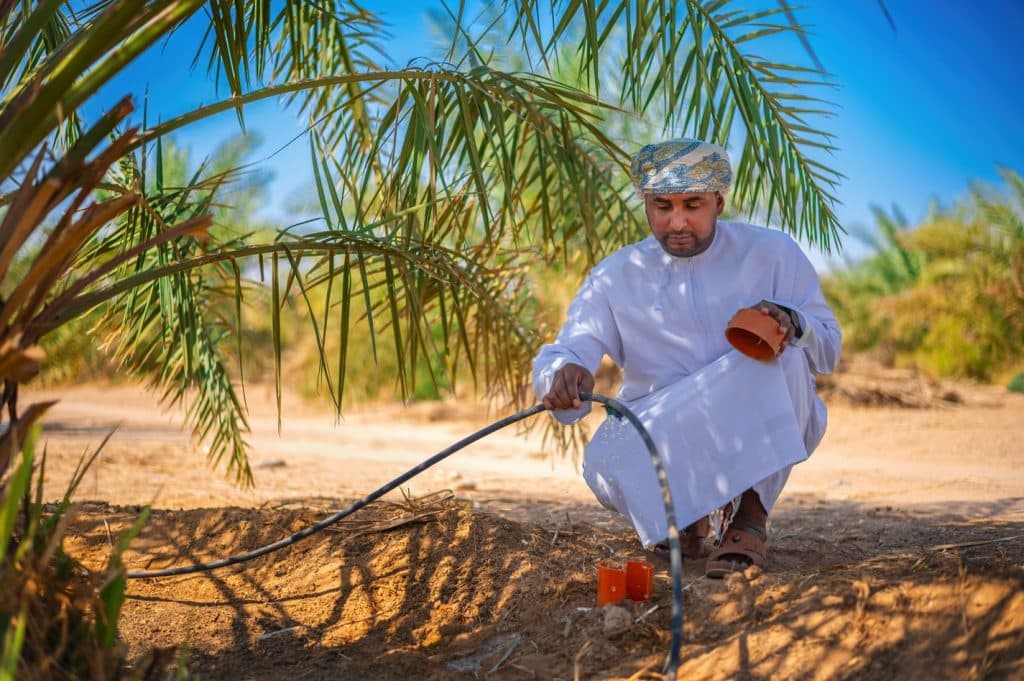
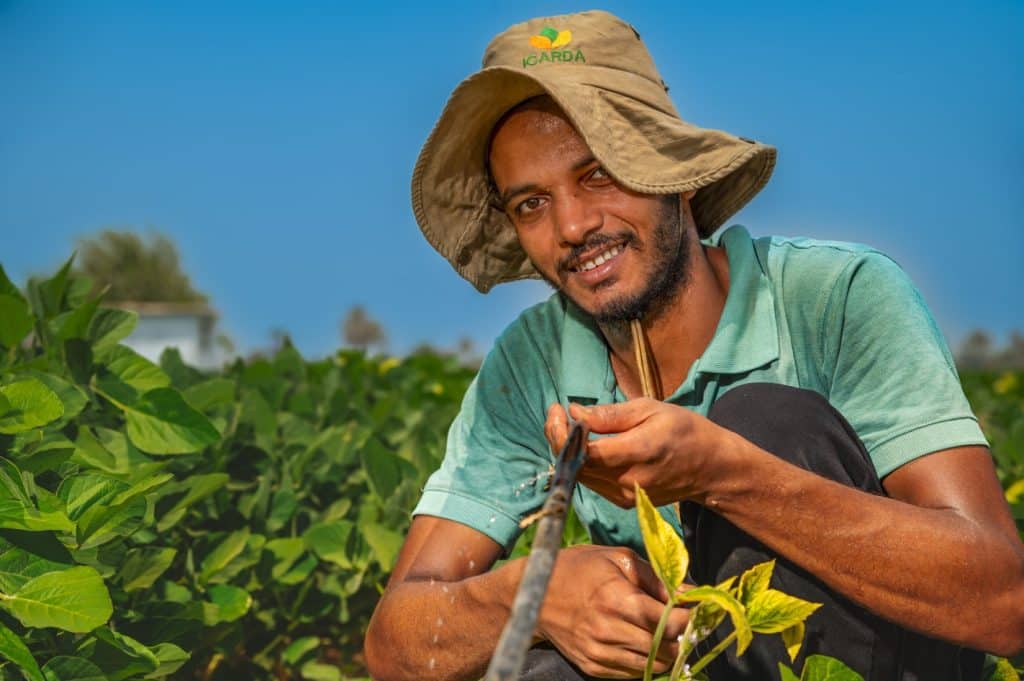
In 2023, ICARDA introduced an ultra-low energy drip irrigation system in Morocco which delivers water and fertilizer directly to crop roots, achieving up to 90 percent water efficiency in trials. With up to 31 percent savings in capital startup costs and lower running costs due to its use of low-pressure emitters, the system is more affordable to farmers than many less efficient alternatives. The system has been successfully demonstrated to over 200 farmers, suppliers, and industry professionals in Kenya, Morocco, and Jordan.
Irrigation water saved through
raised-bed planting and
crop rotation in Egypt
Average barley yield increase in
Tunisia under conservation agriculture
Energy reduced by integrating
ULE drippers in net houses in the Arabian Penninsula
In 2023, ICARDA and Egypt’s Agriculture Research Center (ARC) organized a series of field days to introduce agricultural innovation bundles to farmers and gather their feedback and insights.
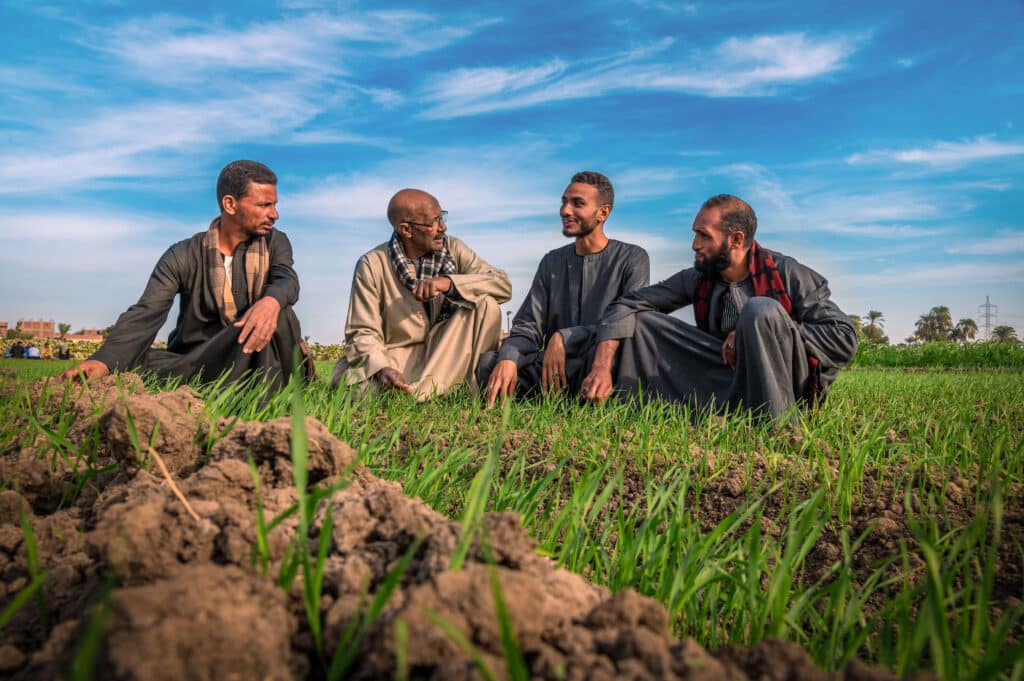
The packages integrate technologies such as irrigation systems, planting methods, and fertilizer applications to boost water productivity, soil health, and crop quality, making agri-innovations more affordable, productive, and scalable to local farmers.
The Innovative Agriculture for Smallholder Resilience (iNASHR) to reduce Egypt’s dependence on imported grains concluded in 2023 after four successful years. The initiative developed and disseminated climate-smart wheat varieties to farmers, empowering them as seed multipliers to enhance seed distribution and stimulate new agribusiness opportunities, including for women. iNASHR also promoted the introduction of nitrogen-fixing legumes into wheat planting schemes, which require minimal water and improve soil health, aiding water retention and increasing carbon capture.
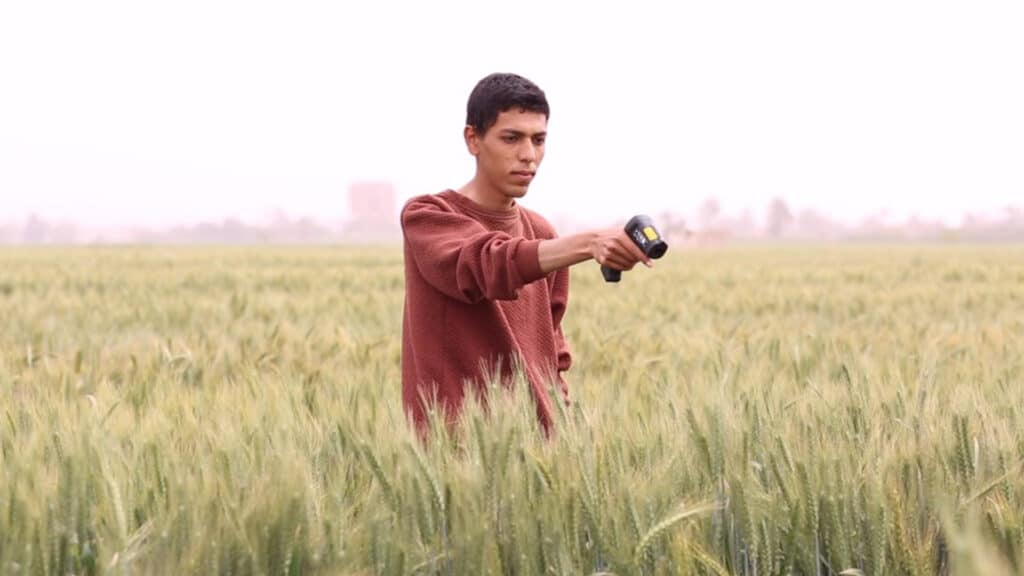
In India, ICARDA collaborated with the Directorate of Farmer Welfare and Agriculture Development of the Madhya Pradesh State Government to establish a network of hi-tech precision farming devices that provide farmers with real-time data and advice via smartphones.
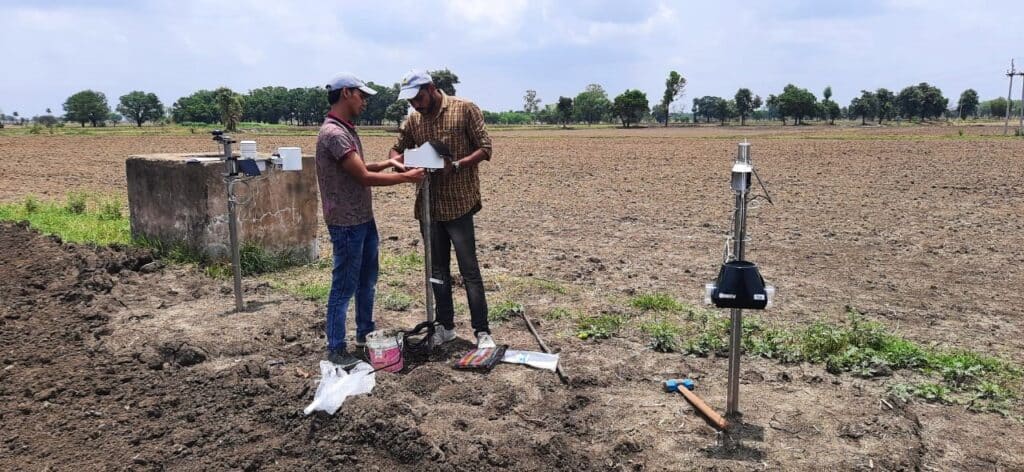
Similarly, in Egypt, the AgriSAT program leverages remote-sensing technologies and satellite observation to provide real-time data on soil moisture, crop water requirements, and weather conditions to farmers, extension agents, and land and water managers.
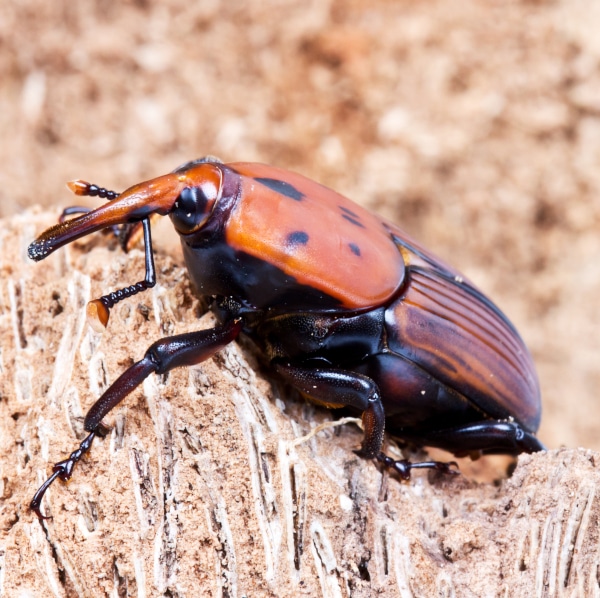
To understand ways to improve the take-up of innovations by farmers, ICARDA researched improving adoption rates of new integrated pest management strategies that combat threats like the Red Palm Weevil in Saudi Arabia and Egypt. A new ICARDA study carried out with support from FAO informs policymakers how adoption decisions by farmers can be affected by age, education, experience,
socioeconomic status, and income source, which particularly affects perceptions of risk. The study emphasizes the importance of tailored and inclusive outreach efforts and capacity-building to enhance adoption rates.
ICARDA also focuses on building research capacity through workshops such as water management training in Syria to demonstrate to farmers how to boost dry-farming crop productivity through a ‘Data Collection Survey on Efficient Agriculture Water Management’ project in the Orontes River Basin. These projects trained agricultural researchers and engineers from the Ministry of Agriculture and the General Commission for Scientific Agricultural Research (GCSAR) on modern irrigation management technology such as gated pipes, solar pumping with drip irrigation, and tank irrigation for kitchen gardens.